Four things we see right now in future of work
By Puk Falkenberg, 02. September 2019
For several years, we have worked with the paradigm shift from old ways of working to new ways of working. Under one umbrella it’s called Future of Work.
Even though we don’t believe in a 2.0 version, we’ve spotted four things amongst leaders in Danish organizations worth sharing. These four things are what we experience the leaders react to the most, something they wonder about, and also something they already try to practice or drive in their organizations.
Back in June, Erik and I made an episode of our podcast “Fremtidens Ledelse To-go” (in danish) on this topic. This blog post highlights our dialogue and thoughts from that episode.
Change happens faster and often
The amount of change is still increasing, and leaders experience it widely; from the way their children go to school and to IT changes in the organization. The amount of change is increasing both in the degree of change itself, and in the breadth of areas they hit across the organization.
We also find that organizations are doing many small things to make the organization more modern. Many react to change on an ongoing basis without talking loud about it. You need to be conscious of what changes that you respond to, and it requires the organization to train a muscle to navigate the more frequent changes we see in Future of Work.
You’ve to make changes to something natural, and not a condition you change in and out of.
Digitalization
The easiest way to discover Future of Work is through digitization. Digitization is the strongest driver for development, and the most visible and tangible.
We see how digitization change the ways in which we communicate and support the way we collaborate. Employees are looking away from internal newsletters, and prefer digital platforms and apps to communicate – and that supports time-present-leadership.
Yet, it can be difficult to roll out a digitization in the form of apps and platforms into large companies. IT Security makes a mark on how much we can roll out. Nonetheless, digitalization fills a lot in Future of Work.
A digital mindset requires new abilities – even for the leaders – and there’s a big gap here.
The way we organize
We see it on social media, we see it in articles, and we see it among our customers; people flirt with Holacracy, Teal and Agile/Scrum.
Our organizational models have changed over the last few years. For some, it means getting a language for something they have already done; for others, this means entirely new measures in the organization.
Common is the degree of people who work with it is increasing. Deloitte’s latest report on human capital trends points out, that what characterize the new type of Future of Work for the next decade, is a huge focus on teams and the way they work and our diversities.
Find the organizational model that best suits your context – and then make it your own!
A millennial mindset
Everyone has a millennial inside themselves, and it have nothing to do with generations and ages. It’s all about behavior and mindset.
Most characteristics of Gen X, Y, Z, Alpha and Millennials put people in boxes based on their age, highlighting that Millennials require more frequent dialogue, more frequent feedback, transparency, fast advancement, extreme freedom, a strong purpose in everything as well as being able work from wherever and whenever.
However, we find that most employees and managers want exactly the same thing. Millennial mindset is all about approach and digital affinity, rather than about age.
If you are not afraid of digitalization, you have more of a millennial mindset.
What’s in it for you?
As a leader, it’s important you look at future trends, predictions and divinations, and translate them into your own context. You’ll never be able to succeed if you apply these one-to-one.
Investigate and observe what is happening in your organization and listen. Listen to colleagues, employees, stakeholders and customers. What do they see in the future? Then, collectively figure out how to make changes, how to evolve and set a direction on where to move to.
Remember the collective intelligence of your team and organization is better than only one smart head making predictions.
Are you looking for
a coach or
a professional mentor?
Want to know more?
Send me an email
and I’ll get back to you!
Do you want to make a deep dive?
Visit our learning paths with the
newest content – it’s all free!






